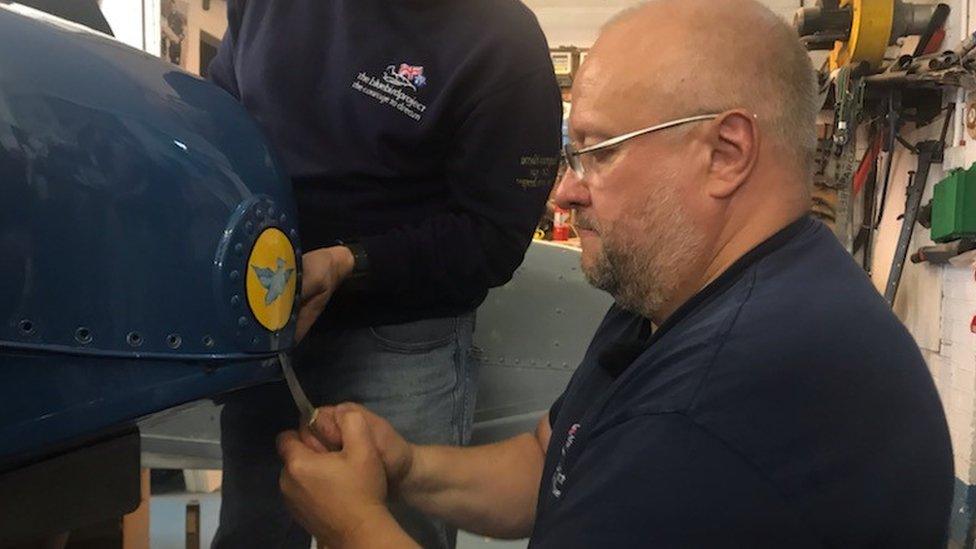Joy as Donald Campbell's Bluebird returns to Coniston
- Published
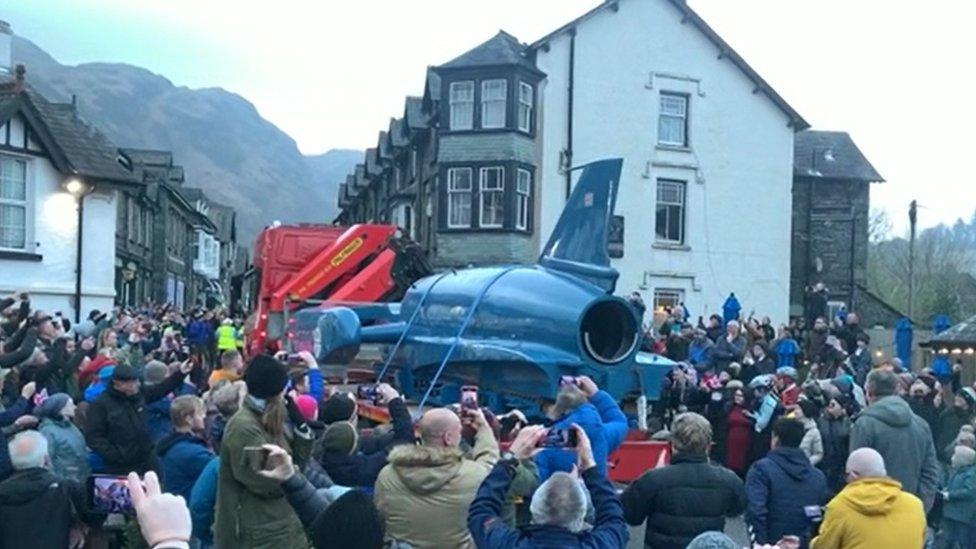
Crowds welcomed Bluebird as it arrived in Coniston on the back of a lorry
Donald Campbell's Bluebird craft has returned to the Lake District 57 years after its pilot was killed in a crash on Coniston Water.
The hydroplane's wreckage was recovered in 2001 and rebuilt by Tyneside engineer Bill Smith.
Following a legal battle, it was handed to Coniston's Ruskin Museum.
The machine was collected from North Shields on Saturday morning and was welcomed with claps and cheers when it reached Coniston later that day.
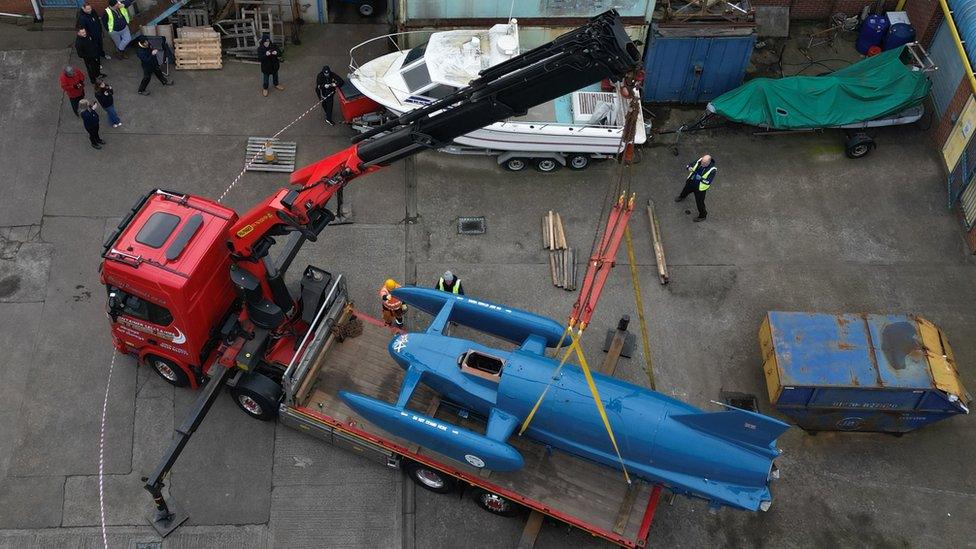
The journey from North Shields began at about 12:00 GMT
Mr Campbell had been trying to push his water-speed record past 300mph (480km/h) when Bluebird somersaulted in January 1967.
The reconstructed craft took to the water again in Scotland in August 2018 and Mr Smith vowed to "fight to the death" over what he said was his stake in it.
However, last month it was announced he had relinquished his claim.
'Mission accomplished'
Jeff Carroll, vice-chairman of the museum's trustees, said it was a "momentous day".
"It means that everybody can actually come and look at Bluebird and see her in all her glory," Mr Carroll said.
"It will mean my mission accomplished, for the moment."
He thanked Mr Smith and his Bluebird Project volunteers, who reconstructed the craft.
It will now become the centrepiece of the museum's Bluebird wing.
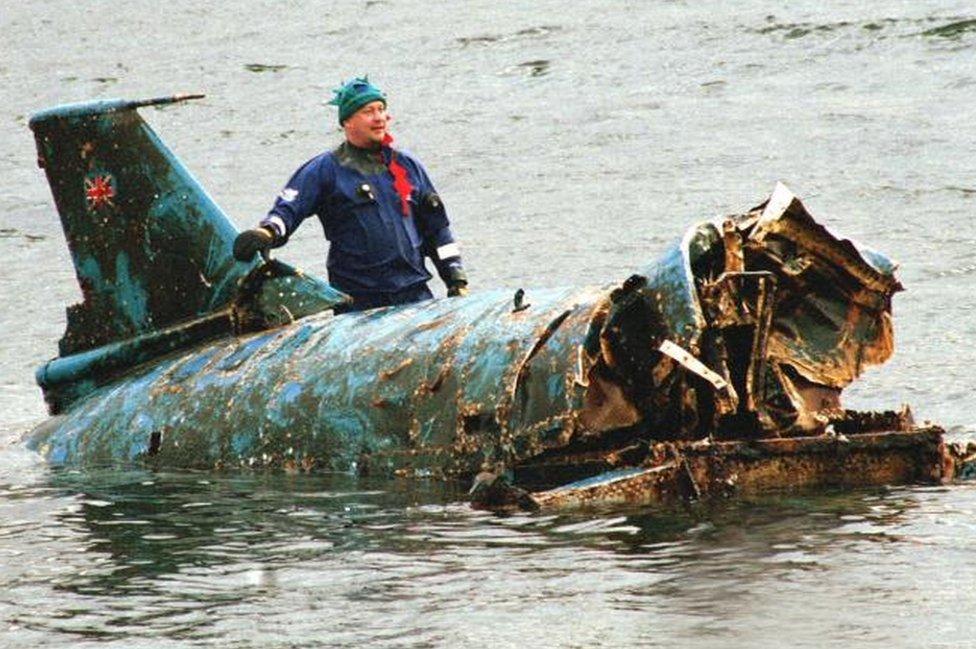
Bill Smith led Bluebird's recovery in 2001 and restored it in his Tyneside workshop
Mr Smith said: "I've always described this as a diving job that got out of hand. That's my short version.
"Everyone's very proud of their work and everyone want to clap their work off the premises and be very positive."

Timeline of a tragedy
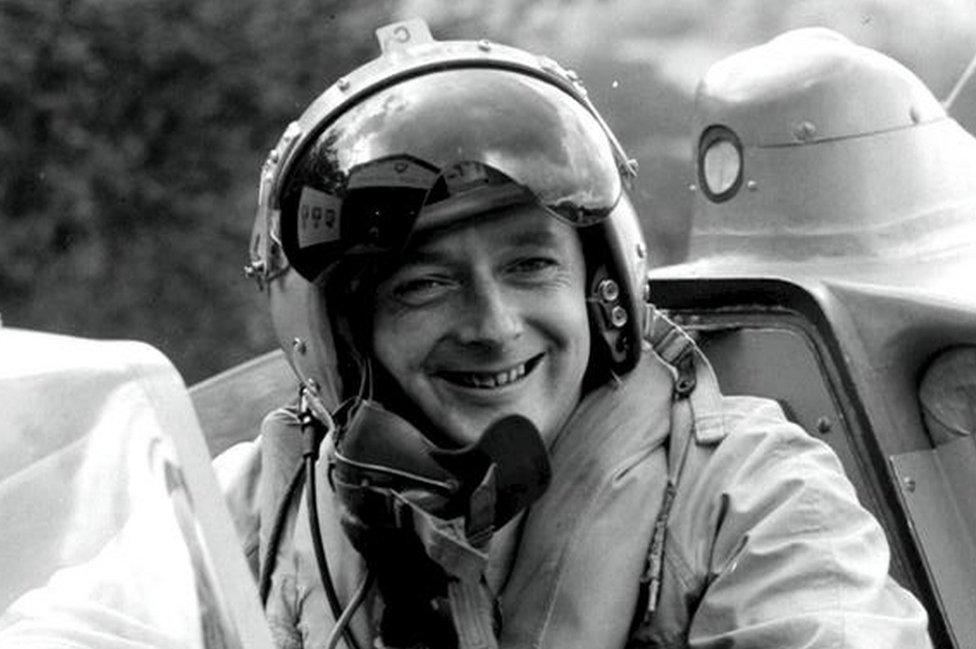
Donald Campbell set seven water-speed world records, including four on Coniston Water, between 1955 and 1964
He achieved a further world best on land in 1964 - becoming the only man to set fastest times on water and land in the same year
Bidding to smash his mark of 276mph (444km/h), he was killed when Bluebird somersaulted on 4 January 1967
The wreckage was raised by Bill Smith's dive team on 8 March 2001, with Mr Campbell's body recovered on 28 May
Bluebird ran again in 2018 at Loch Fad on the Isle of Bute after its lengthy restoration

Mr Campbell's daughter, Gina, was at Coniston for Bluebird's arrival, where crowds of onlookers had gathered.
"I said to my partner, I will never live long enough to see this day," she said. "And if it hadn't been for the museum and their tenacity and doggedness to see this through, I don't think I would've lived long enough to see this day."
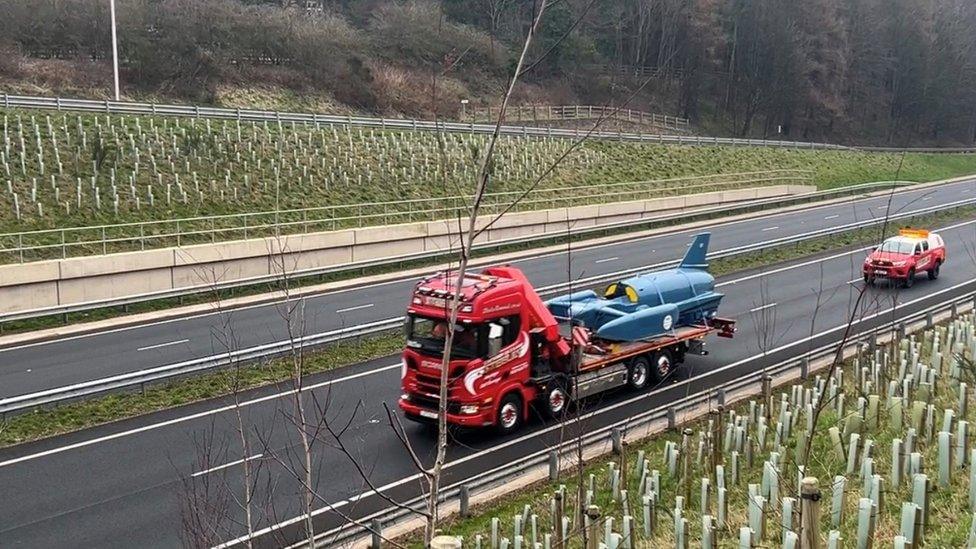
Bluebird was visible as it was transported to Cumbria from Tyneside
Mr Smith has accused the museum of being "spiteful" and "vindictive" in requesting the craft be handed over.
While Miss Campbell said she had sympathy for BBP volunteers, she said that Bluebird was "coming home".
"I'm not going to gloat in any way, shape or form. There are no winners in this other than right over wrong. It didn't have to be this way," she said.
Related topics
- Published8 March 2024
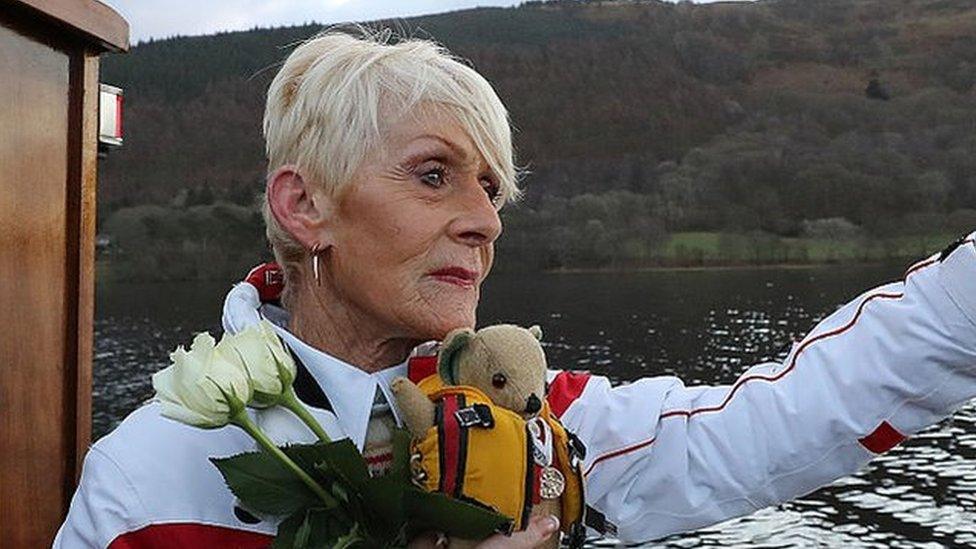
- Published13 February 2024
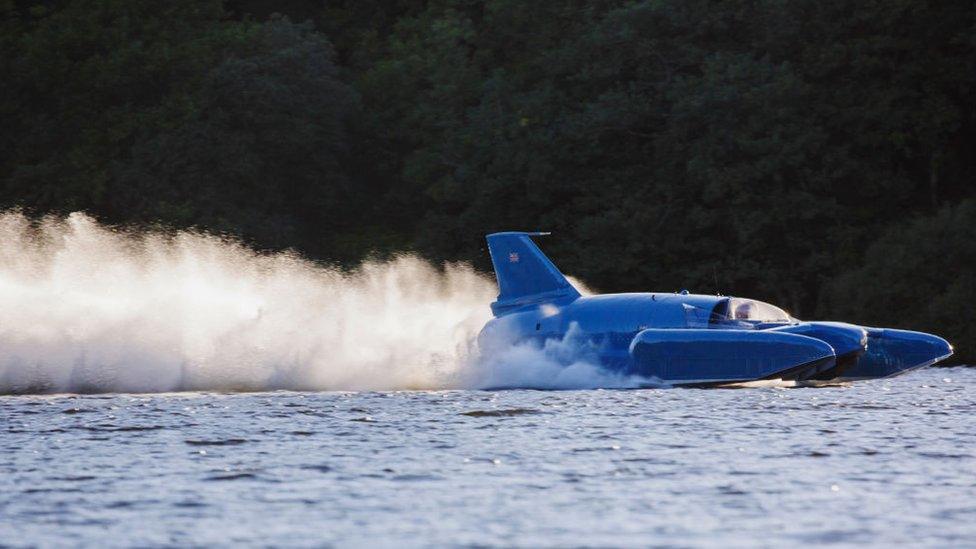
- Published9 February 2024
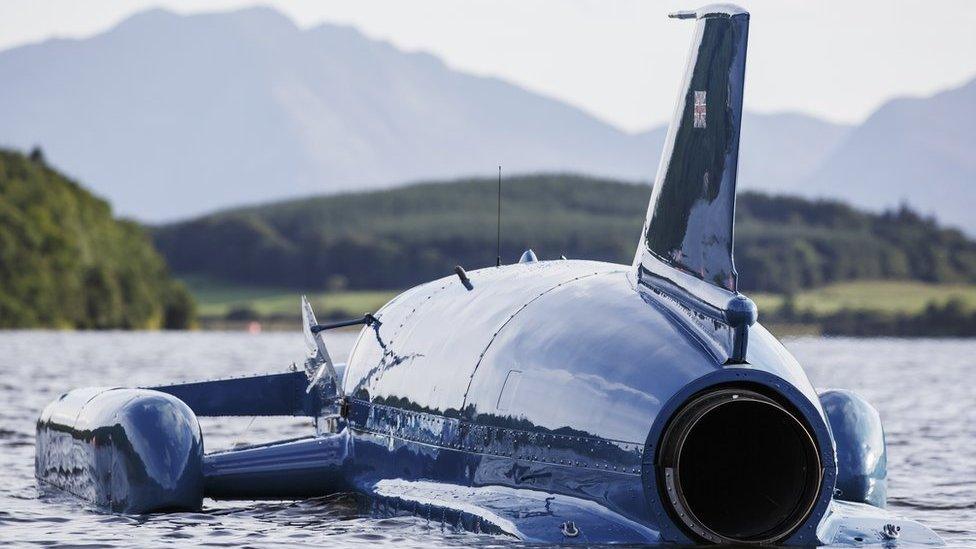
- Published19 September 2021
